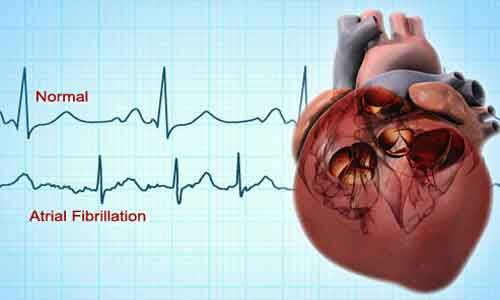- Home
- Medical news & Guidelines
- Anesthesiology
- Cardiology and CTVS
- Critical Care
- Dentistry
- Dermatology
- Diabetes and Endocrinology
- ENT
- Gastroenterology
- Medicine
- Nephrology
- Neurology
- Obstretics-Gynaecology
- Oncology
- Ophthalmology
- Orthopaedics
- Pediatrics-Neonatology
- Psychiatry
- Pulmonology
- Radiology
- Surgery
- Urology
- Laboratory Medicine
- Diet
- Nursing
- Paramedical
- Physiotherapy
- Health news
- Fact Check
- Bone Health Fact Check
- Brain Health Fact Check
- Cancer Related Fact Check
- Child Care Fact Check
- Dental and oral health fact check
- Diabetes and metabolic health fact check
- Diet and Nutrition Fact Check
- Eye and ENT Care Fact Check
- Fitness fact check
- Gut health fact check
- Heart health fact check
- Kidney health fact check
- Medical education fact check
- Men's health fact check
- Respiratory fact check
- Skin and hair care fact check
- Vaccine and Immunization fact check
- Women's health fact check
- AYUSH
- State News
- Andaman and Nicobar Islands
- Andhra Pradesh
- Arunachal Pradesh
- Assam
- Bihar
- Chandigarh
- Chattisgarh
- Dadra and Nagar Haveli
- Daman and Diu
- Delhi
- Goa
- Gujarat
- Haryana
- Himachal Pradesh
- Jammu & Kashmir
- Jharkhand
- Karnataka
- Kerala
- Ladakh
- Lakshadweep
- Madhya Pradesh
- Maharashtra
- Manipur
- Meghalaya
- Mizoram
- Nagaland
- Odisha
- Puducherry
- Punjab
- Rajasthan
- Sikkim
- Tamil Nadu
- Telangana
- Tripura
- Uttar Pradesh
- Uttrakhand
- West Bengal
- Medical Education
- Industry
Continuous ECG increases AF detection 10-folds compared to standard care: JAMA

Canada: Screening atrial fibrillation (AF) with a wearable cECG monitor versus standard care increased AF detection 10-fold in older hypertension patients, show results from SCREEN-AF trial. Further, it also prompted initiation of anticoagulation in most cases.
The findings of the study are published in the journal JAMA Cardiology.
Atrial fibrillation is a major cause of strokes that can be prevented. Screening asymptomatic patients for AF may increase the use of anticoagulants for the prevention of stroke. David J. Gladstone, Sunnybrook Health Sciences Centre, Toronto, Ontario, Canada, and colleagues aimed to evaluate 2 home-based AF screening interventions.
For the purpose, the researchers performed a multicenter randomized clinical trial and recruited older patients (aged 75 years and above) with hypertension and without known AF from primary care practices. A total of 2019, 856 participants were enrolled between April 5, 2015, to March 26, 2019 from 48 practices.
The patients were divided into two groups -- control group received (routine clinical follow-up plus a pulse check and heart auscultation at baseline and 6 months) and screening group received a 2-week continuous electrocardiographic (cECG) patch monitor to wear at baseline and at 3 months, in addition to standard care. The screening group also received automated home blood pressure (BP) machines with oscillometric AF screening capability to use twice-daily during the cECG monitoring periods.
The primary outcome was AF detected by cECG monitoring or clinically within 6 months.
Key findings of the study include:
- In the primary analysis, AF was detected in 23 of 434 participants (5.3%) in the screening group vs 2 of 422 (0.5%) in the control group (relative risk, 11.2; number needed to screen, 21).
- Of those with cECG-detected AF, median total time spent in AF was 6.3 hours (IQR, 4.2-14.0 hours; range 1.3 hours-28 days), and median duration of the longest AF episode was 5.7 hours (IQR, 2.9-12.9 hours).
- Anticoagulation was initiated in 15 of 20 patients (75.0%) with cECG-detected AF. By 6 months, anticoagulant therapy had been prescribed for 18 of 434 participants (4.1%) in the screening group vs 4 of 422 (0.9%) in the control group (relative risk, 4.4).
- Twice-daily AF screening using the home BP monitor had a sensitivity of 35.0%, specificity of 81.0%, positive predictive value of 8.9%, and negative predictive value of 95.9%.
- Adverse skin reactions requiring premature discontinuation of cECG monitoring occurred in 5 of 434 participants (1.2%).
"Compared with regular checks in primary care, continuous ECG monitoring revealed more asymptomatic older people with hypertension as having atrial fibrillation (Afib)," concluded the authors.
"In this trial, a wearable electrocardiogram-based screening intervention increased atrial fibrillation detection 10-fold and prompted anticoagulation in most cases; this strategy warrants evaluation to prevent stroke," they wrote.
The study titled, "Screening for Atrial Fibrillation in the Older Population: A Randomized Clinical Trial," is published in the journal JAMA Cardiology.
DOI: https://jamanetwork.com/journals/jamacardiology/article-abstract/2776728
Dr Kamal Kant Kohli-MBBS, DTCD- a chest specialist with more than 30 years of practice and a flair for writing clinical articles, Dr Kamal Kant Kohli joined Medical Dialogues as a Chief Editor of Medical News. Besides writing articles, as an editor, he proofreads and verifies all the medical content published on Medical Dialogues including those coming from journals, studies,medical conferences,guidelines etc. Email: drkohli@medicaldialogues.in. Contact no. 011-43720751


